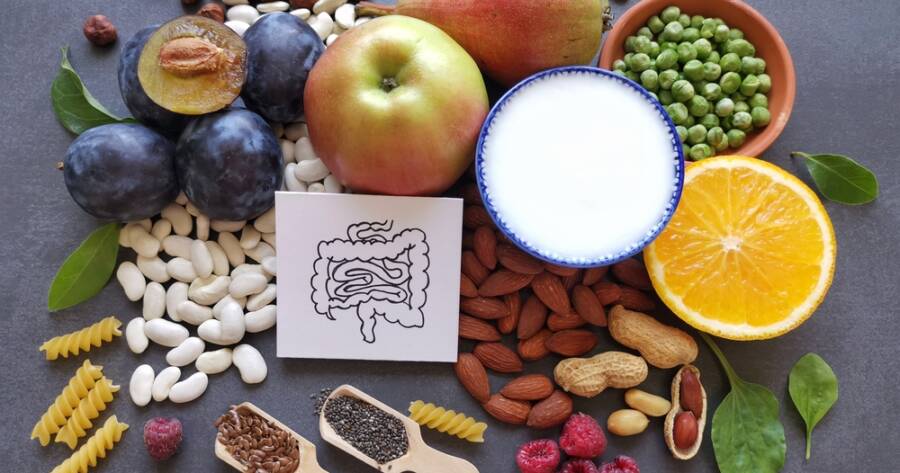Your gut does more than just digest food—it plays a crucial role in your overall health. A balanced gut microbiome, the ecosystem of bacteria in your digestive tract, supports digestion, boosts immunity, and even influences mental health. With growing research highlighting the connection between gut health and well-being, more people are turning to gut-friendly foods to improve digestion and strengthen their immune systems. Explore the best foods for a thriving microbiome and how they benefit your health.
The Role of the Gut Microbiome in Overall Health
The gut microbiome is home to trillions of bacteria, fungi, and other microorganisms, which work together to keep your digestive system functioning properly. A diverse and balanced microbiome is linked to:
- Better digestion: Supports the breakdown of food and nutrient absorption.
- Stronger immunity: Helps prevent infections by maintaining a healthy gut barrier.
- Mental health benefits: Influences the production of serotonin and other neurotransmitters.
- Reduced inflammation: A balanced gut can lower the risk of chronic diseases like diabetes and heart disease.
Factors such as diet, stress, antibiotic use, and sleep quality all affect your gut bacteria. Eating the right foods can help restore balance and support long-term health.
Probiotic-Rich Foods: Feeding Your Good Bacteria
Probiotics are beneficial bacteria that help maintain and restore gut balance. Consuming probiotic-rich foods introduces live, healthy microbes to your digestive system, which can improve digestion, reduce bloating, and support immune function.
Top Probiotic Foods:
- Yogurt: Contains live cultures like Lactobacillus and Bifidobacterium, which aid digestion and gut health.
- Kefir: A fermented dairy drink with even more probiotics than yogurt, plus beneficial yeasts.
- Sauerkraut & Kimchi: Fermented cabbage varieties packed with probiotics and fiber.
- Miso & Tempeh: Fermented soy products rich in both probiotics and protein.
- Kombucha: A fermented tea that contains probiotic strains and antioxidants.
Adding probiotic foods to your diet regularly helps maintain a healthy gut microbiome, but they work best when paired with prebiotics.
Prebiotic Foods: Fuel for Beneficial Gut Bacteria
Prebiotics are types of fiber that feed the good bacteria in your gut, helping them thrive and multiply. Unlike probiotics, which introduce bacteria, prebiotics nourish and support existing gut bacteria.
Best Prebiotic Foods:
- Garlic & Onions: Contain inulin, a powerful prebiotic fiber that supports beneficial bacteria.
- Bananas: Especially ripe bananas, which provide resistant starch that feeds gut microbes.
- Asparagus & Leeks: Rich in inulin and other prebiotic fibers that promote gut health.
- Oats: Contain beta-glucan, a fiber that supports gut bacteria and lowers cholesterol.
- Apples: High in pectin, which increases the growth of good bacteria and supports digestion.
By combining prebiotics and probiotics, you create the perfect environment for a healthy microbiome. For example, eating yogurt (probiotic) with bananas (prebiotic) provides both live bacteria and the fuel they need to thrive.
Fiber and Fermented Foods for Digestion & Immunity
A high-fiber diet is essential for gut health because it regulates digestion, feeds beneficial bacteria, and prevents constipation. Many fiber-rich foods also have natural fermentation properties, making them even more beneficial.
Best Fiber & Fermented Foods for Gut Health:
- Legumes & Beans: Lentils, chickpeas, and black beans are packed with fiber and plant-based protein.
- Whole Grains: Brown rice, quinoa, and whole wheat support digestion and gut bacteria.
- Chia & Flaxseeds: Contain soluble fiber that aids digestion and reduces inflammation.
- Dark Leafy Greens: Spinach, kale, and Swiss chard provide fiber and polyphenols, which act as fuel for gut bacteria.
- Fermented Vegetables: Pickles (naturally fermented), natto (fermented soybeans), and fermented carrots add a diverse range of beneficial bacteria to your gut.
Eating a variety of these fiber-rich and fermented foods improves gut diversity, which is essential for a healthy immune system and digestion.
A Balanced Gut for a Healthier You
A healthy gut microbiome is key to overall well-being, influencing digestion, immunity, and even mental health. By incorporating probiotic-rich, prebiotic, and fiber-packed foods, you can support your gut bacteria and create a balanced, resilient digestive system. As research continues to uncover the profound effects of gut health on the body, prioritizing microbiome-friendly foods will remain one of the best ways to promote long-term wellness

